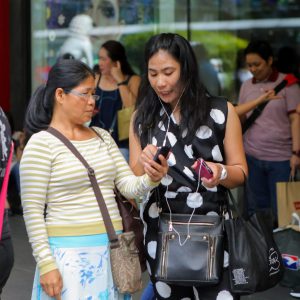Social Protection for Migrant Domestic Workers in Singapore: International Conventions, the Law, and Civil Society Action
December 16, 2022

On 18 December 1990, the United Nations (UN) adopted the International Convention for the Protection of the Rights of all Migrant Workers and Members of their Families. The treaty recognized the increased risk, exploitation, and abuse faced by migrant domestic workers, and called for the equal treatment and protection for migrant workers and members of their families.
In ‘Social Protection for Migrant Domestic Workers in Singapore: International Conventions, the Law, and Civil Society Action’ (American Behavioral Scientist, 2020), Professor Brenda Yeoh (NUS Geography and Asia Research Institute), Ms Charmian Goh (Formerly Asia Research Institute), and Ms Kellynn Wee (Asia Research Institute) examine the various types of social protection enacted for foreign domestic workers in Singapore.
Typically, migrant workers rely on different transnational sources for social protection. They include international UN conventions, laws from their countries of origin, and laws from the host nation. However, the transnational options available to protect migrant workers in Singapore are restricted. The UN convention in 1990 was not ratified, and neither were the more recent UN treaties on migrant worker rights. Additionally, third-party organizations like migrant welfare groups face many restrictions. It is illegal to hold public assemblies without a permit and if one is not Singaporean. This meant that most organizations helping migrant workers are ‘service-oriented’ instead of ‘advocacy-oriented’. They concentrate on providing service and teaching the workers new skills instead of campaigning for their increased rights. Ultimately, social support and protection for migrant domestic workers still depend largely on the restrictiveness of the host society, and third-party organizations will have to work within stipulated guidelines.
To move forward in this highly regulated environment, migrant welfare groups may need to work cautiously, and negotiate for small incremental changes to increase social protection for migrant workers.
Read the full article here.
